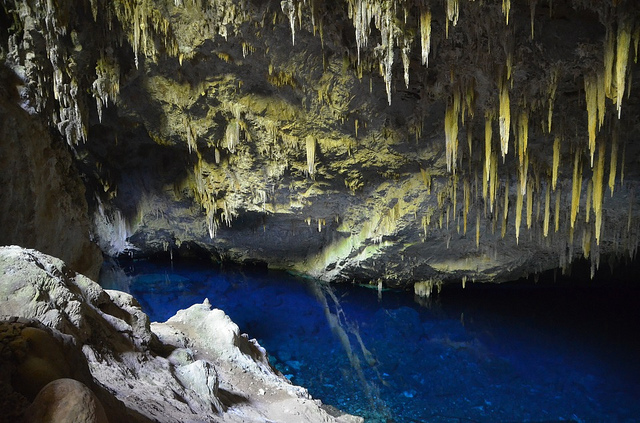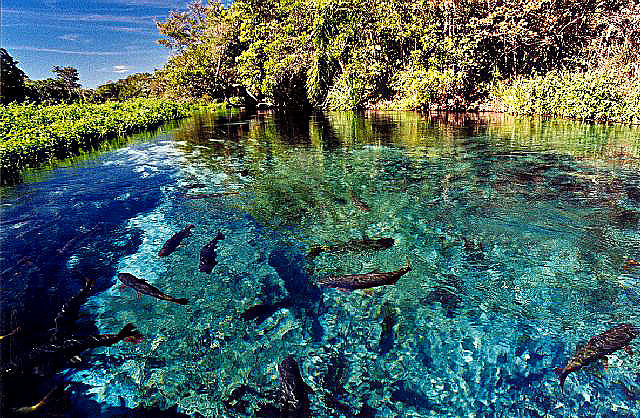Many exciting initiatives have been launched in the field of sustainable tourism. Some important features that these efforts share are heightened ecological sensitivity, building inclusive local communities, visitor education & outreach, and a sustainable use of natural resources.
The first in our series of highlighting such efforts is naturally from the host nation, Brazil: The town of Bonito in Mato Grosso do Sul.
Bonito (meaning ‘beautiful’ in Portuguese) is part of the Serra da Bodoquena, a carbonate plateau on the south-eastern border of the Pantanal. Here, pristine rivers meander through forested hills and mountains. Scenic waterfalls, cliffs and many caves complete the stunning backdrop for various adventure activities such as snorkelling, rappelling and rafting.
Due to the location of Bonito on a junction of three major biomes of Brazil : the Cerrado (Brazilian Savanna),Pantanal (wetlands wilderness) and the Atlantic Rainforest- the variety of wildlife to be seen here is unique and astonishingly diverse.
The Serra de Bodoquena is a major recharge area for the Guarani Aquifer, the largest single body of groundwater in the world (covering an area of 1.2 million sq. km).
The local government and community realizes the importance of this unique ecosystem and works through a pioneering system of vouchers to conduct the local tourism business. Thus, there is a well established aligning of interests that ensures that local communities, businesses, and visitors all benefit from the continued ethical approach to the local biomes.
- Each of the 38 accredited attractions in Bonito can only be booked by purchasing vouchers.
- These vouchers can only be bought at accredited travel agents.
- The price of each activity is regulated through the voucher. Prices are non-negotiable, and are the same irrespective of the location where they are purchased from.
This system has multiple safeguards, and sets up an effective scheme of checks and balances which places sustainability front and centre.
- An attraction is granted accreditation to issue vouchers only after going through a systematic process that determines environmental impact and carrying capacity.
- Every certified activity must be undertaken with a certified, rigorously trained guide who helps visitors interpret the region through its unique ecological lens.
- The vouchers generate income that is used for preservation of the regions ecosystem.
- The policy also provides for the operation of small, locally owned tourism businesses to ensure that local employment is accorded a high priority.
These are the kinds of cutting edge sustainability initiatives that need to adapted and replicated the world over to make the sustainable travel movement a truly global one. These initiatives show that it is possible to have a conservation led approach that benefits all stakeholders. Putting “nature first” can and does lead to fairness for all.
References:
https://www.ecotourism.org/news/bonito-brazil-capital-ecotourism
http://www.wttc.org/tourismfortomorrow/winners-finalists/2014-winners-finalists/bonito-city-hall/


